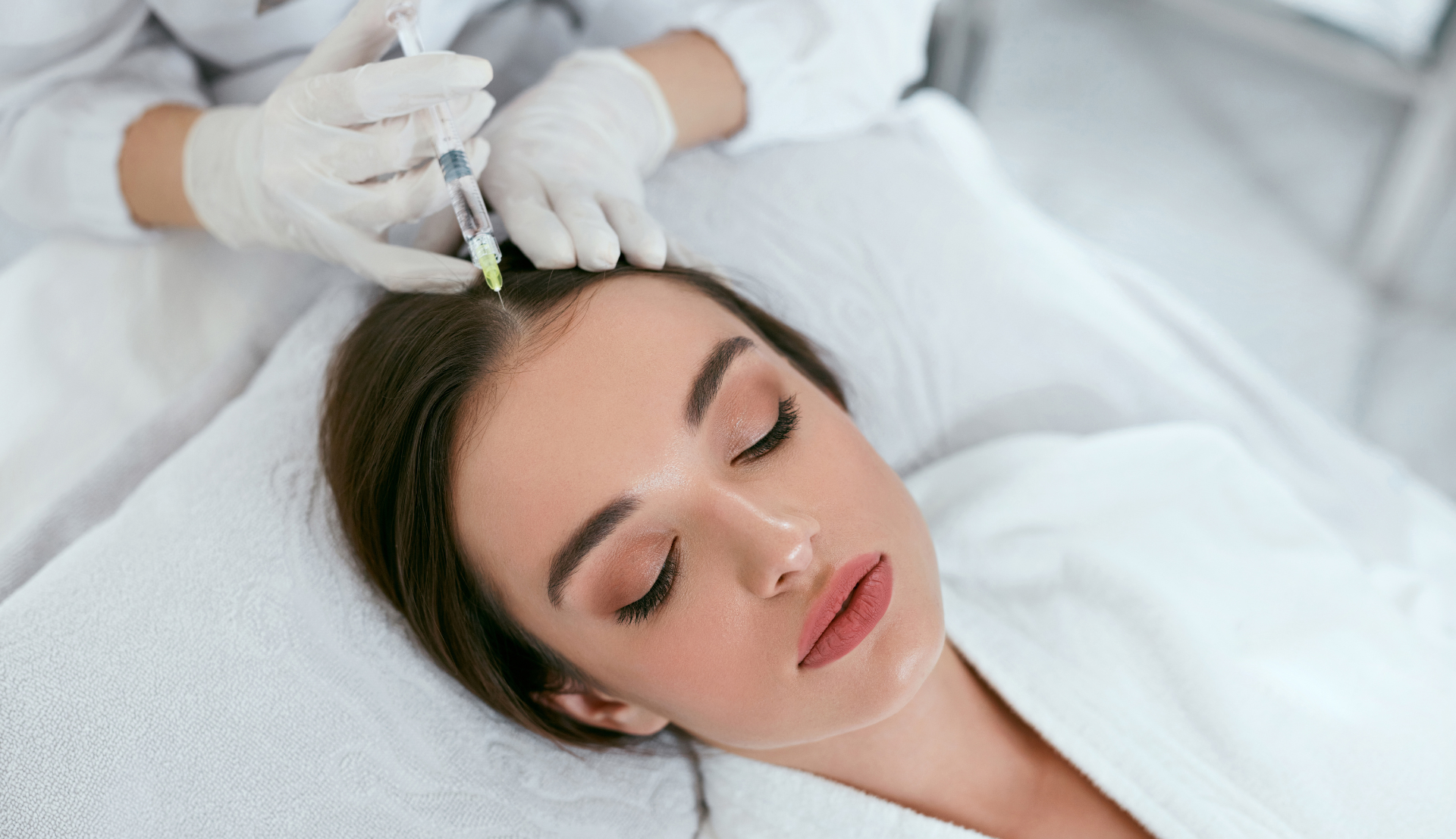Are you concerned about Preventing Hair Loss and looking for ways to maintain a healthy head of hair? In this weblog, we’ll explore effective strategies to prevent hair loss and promote overall hair health.
Balanced Diet:
A well-balanced diet rich in vitamins and minerals is essential for healthy hair. Ensure your meals include a variety of fruits, vegetables, lean proteins, and whole grains. Nutrients like biotin, iron, and omega-3 fatty acids play a crucial role in preventing hair loss.
Scalp Care:
Keep your scalp clean and nourished. Regular, gentle washing helps remove excess oil and prevent dandruff, which can contribute to hair loss. Consider using a mild, sulfate-free shampoo and conditioner suitable for your hair type.
Also Read: Hair mesotherapy benefits
Avoid Heat and Chemical Damage:
Excessive heat styling and chemical treatments can weaken hair strands. Minimize the use of hair dryers, straighteners, and harsh chemical products. If unavoidable, use heat protectants and opt for professional, reputable salons.

Manage Stress:
Stress is a common contributor to hair loss. Practice stress-reducing activities such as meditation, yoga, or deep breathing exercises. Prioritize self-care to promote overall well-being.
Regular Exercise:
Physical activity improves blood circulation, including to the scalp. Engage in regular exercise to enhance overall health, which can positively impact the health of your hair.
Adequate Hydration:
Proper hydration is crucial for healthy hair growth. Ensure you drink enough water throughout the day to keep your body and hair well-hydrated.
Avoid Tight Hairstyles:
Tight hairstyles, such as ponytails or braids, can cause stress on the hair shaft and lead to breakage. Opt for looser styles to reduce strain on your hair.
Regular Trims:
While getting a trim doesn’t directly prevent hair loss, it helps get rid of split ends and keeps your hair looking healthy. Aim for a trim every 6-8 weeks.
Medical Consultation:
If you notice persistent hair loss or thinning, consult a healthcare professional or a dermatologist. They can help identify underlying causes and recommend appropriate treatments or lifestyle changes.
Supplements for Hair Health:
Consider incorporating supplements that support hair growth. Biotin, vitamin D, iron, and omega-3 fatty acids are known to contribute to healthy hair. Consult with a healthcare professional before adding supplements to your routine.
Avoid Smoking and Limit Alcohol Consumption:
Smoking has been linked to hair loss, while excessive alcohol intake can dehydrate the body, potentially affecting hair health. Quitting smoking and moderating alcohol consumption can positively impact your overall well-being, including the condition of your hair.
Choose Gentle Hair Accessories:
Be mindful of the accessories you use in your hair. Opt for soft scrunchies or fabric hair ties instead of tight elastics, which can cause breakage. Avoid metal clips or accessories that may snag and damage your hair.
Protect Your Hair from the Sun:
UV rays can damage hair and lead to dryness and breakage. When spending extended periods in the sun, consider wearing a hat or using a UV-protective spray to shield your hair from harmful rays.
Massage Your Scalp:
Regular scalp massages stimulate blood flow to the hair follicles, promoting hair growth. Use gentle circular motions while washing your hair or incorporate a few minutes of scalp massage into your routine.
Also Read:Increase Your Hair Growth
Choose the Right Hair Products:
Select shampoos, conditioners, and styling products that suit your hair type. Look for products that are sulfate-free and designed to nourish and strengthen your hair. Experiment with different products to find what works best for you.

Stay Hygienic with Hair Tools:
Keep your combs, brushes, and other styling tools clean. Dirty tools can harbor bacteria and product buildup, which may negatively affect your hair and scalp health.
Hormonal Balance:
Hormonal imbalances can contribute to hair loss. If you suspect hormonal issues, consult with a healthcare professional to explore possible solutions, which may include medication or lifestyle adjustments.
Genetic Factors and Acceptance:
It’s important to acknowledge that genetic factors can play a role in hair loss. If hair loss runs in your family, consider discussing preventive measures and potential treatments with a healthcare professional.
Remember, maintaining healthy hair is a holistic endeavor that involves a combination of proper nutrition, lifestyle choices, and regular care. By incorporating these additional tips into your routine, you’ll be taking proactive steps towards preventing hair loss and fostering a thriving mane.
By adopting these lifestyle changes and incorporating good hair care habits, you can significantly reduce the risk of hair loss and promote a vibrant, healthy mane. Remember, consistency is key, so make these practices a part of your regular routine for the best results.


